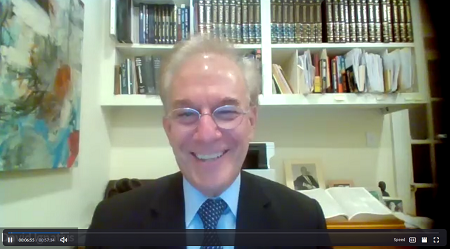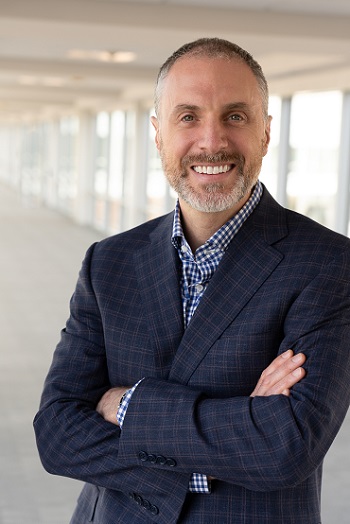STS News, Spring 2021 — The US Preventive Services Task Force (USPSTF) in March revised recommendations for lung cancer screening, which more than doubles the number of US adults eligible for annual scans.
The modified guidelines included two significant changes: Screening with low-dose computed tomography now may begin at age 50, instead of 55, and "heavy smoker" was redefined as a 20 pack-year history—a reduction of 10 pack-years.
With this more inclusive criteria, eligibility is expected to increase from 6.4 million adults to 14.5 million and open the door for screening more women and blacks—both of whom tend to develop lung cancer earlier than white men and after less tobacco exposure.
The Society supports these changes; however, it recognizes that most people who qualify and could be helped by the screening do not take advantage of it; very often, it is because they cannot afford it.
The Affordable Care Act requires private insurers to begin covering screenings within a year, according to the new guidelines, but half of those eligible do not have insurance or Medicaid, and not all Medicaid plans cover the screening.
STS, in collaboration with the GO2 Foundation for Lung Cancer and the American College of Radiology, is urging the Centers for Medicare & Medicaid Services (CMS) to revise its coverage policies quickly. The Society will continue to share updates.
Patient Access, Health Equity Lead Advocacy Priorities for 2021
The Society has released its 2021 advocacy priorities, which provide the framework for discussions with legislators and other stakeholders, as well as help focus additional advocacy efforts.
Maintaining Patient Access to Cardiothoracic Surgery
In 2020, proposed cuts to Medicare reimbursement threatened the financial viability of cardiothoracic surgeons’ clinical practices and patient access to care. A temporary fix spared cardiothoracic surgery, but is set to expire on January 1, 2022.
In addition, at press time, the House of Representatives was expected to reconvene and pass the Senate version of a bill that further delays implementation of a mandated 2% cut in Medicare reimbursement until December 31. STS will continue fighting hard to permanently reverse the pending reimbursement cuts.
Improving Health Equity
The Society is deeply committed to the elimination of racial bias and disparities in access to health care and health outcomes across races, socioeconomic status, and gender.
As a part of its advocacy efforts, STS will support legislation and funding for research that advances racial and socioeconomic equity in access to health care and maintains high-quality care for patients. In addition, it will encourage diversity, equity, and inclusion in the health care system and help educate policymakers on how the STS National Database can be used to facilitate better health outcomes across various groups.
Obtaining Medicare Claims Data
The robust clinical information in the STS National Database, when combined with Medicare claims data, helps paint a full picture of patient care and facilitate meaningful health research and quality improvement. In order for that to happen, CMS must share claims data with STS.
Similarly, coverage with evidence development (CED) requires participation in a registry such as the STS/ACC TVT Registry, allowing the use of real-world evidence to evaluate the performance of novel technologies. Although CED is a critical mechanism to track post-market outcomes, CMS recently has signaled a shift away from using CED in coverage decisions.
Preserving Health Care Research Funding
Funding for health care research is critical. The Society will continue to build on recent successes to address the financial sustainability of important health care research and policies.
Strengthening Support Systems for Patients with CHD
While STS previously supported the Congenital Heart Futures Act of 2018, more work is needed to ensure quality care for patients with congenital heart disease (CHD). Other areas of focus include eliminating barriers to treatment caused by transitions in insurance coverage and ensuring that newborns are screened for CHD using pulse oximetry testing upon hospital discharge.
For more information about getting involved in advocacy and health policy, visit sts.org/keycontact.

New Exclusive Series Covers Hot-Button Issues
The STS-PAC Speaker Series—just launched in March—offers live, virtual conversations with prominent experts in advocacy, journalism, politics, and policy.
These exclusive events, open only to 2021 STS-PAC contributors, are designed to connect special guests with members of the cardiothoracic surgery specialty to share experiences, offer insight, and develop ideas.
More than 110 participants attended the first 1-hour event, held on March 10, which featured foreign affairs columnist for The Washington Post and bestselling novelist David Ignatius. Drawing from more than 40 years of on-the-ground reporting on politics, economics, and the Middle East, Ignatius addressed journalistic integrity.

“As a highly respected journalist and Washington Post columnist, David Ignatius provided an informative and authoritative view of the national political scene. This was a great way to kick off the STS-PAC Speaker Series,” said Mark B. Orringer, MD, STS Past President.
Additional Speaker Series events are in the works, with details to be announced soon. For more information, visit sts.org/speakerseries.
Key Contact of the Year Offers Reminder that ‘Knowledge Is Power’
The Society’s Key Contact of the Year Award recognizes those STS members who have gone above and beyond to advocate for the specialty. 2020 recipient Aaron W. Eckhauser, MD, MS, a pediatric cardiothoracic surgeon and associate professor at the University of Utah in Salt Lake City, shared his thoughts on the importance of grassroots advocacy, his experience working with legislators, and why he believes his STS colleagues must become involved in advocating for the specialty.

2020 recipient Aaron W. Eckhauser, MD, MS, from the University of Utah in Salt Lake City, shared his thoughts on the importance of advocacy in cardiothoracic surgery.
Why are you involved in STS advocacy? Why is it so important?
As an early attending, I was awarded the STS/ACS Health Policy Scholarship and was able to attend the Brandeis University Leadership Program in Health Policy and Management. As a result of that experience, I was offered the opportunity to become involved in STS advocacy, and I’ve spent 6 years contributing and learning. I was so focused on the daily grind of surgery that I was completely unaware of all of the important topics affecting our field. Knowledge really is power.
How was your experience serving on the STS Workforce on Health Policy, Advocacy & Reform?
Overall it’s been a great experience. I was quite intimidated at first. I was very young and I didn’t know anyone on the committee and it’s tough to develop rapport through monthly group calls. However, over time I’ve become more comfortable with the legislative process and speaking up in meetings. The professional team in Washington, DC has been fantastic in not only advocating for the Society, but also in educating us about things that many of us struggle to completely understand.
How have you engaged with your lawmakers at home?
This in an area that I have enjoyed and look forward to developing. I met with Chris Stewart (R-UT) several times. He was extremely nice and accommodating of my time. Even though I felt somewhat intimidated by speaking with a Congressperson about legislative matters, I quickly learned that it wasn’t so much about my legislative knowledge, but more about connecting and sharing stories. With a son in residency, Rep. Stewart was intimately aware of some of the concerns and frustrations that we experience as doctors. So, it was fun to share personal and patient stories with him. It’s certainly more powerful than simply reading facts.
What would you say to STS Members so that they become more involved?
While these topics are often out of our comfort zone and can be intimidating, they’re also fascinating. It is a great opportunity to advocate on behalf of our colleagues and the specialty, and it gives you a new appreciation for our legislative process. I’ve met some great people in the Society who I otherwise would never have known and it’s done nothing but open doors for me moving forward. Whether or not advocacy has been an interest of yours, this is a fantastic way to grow professionally.